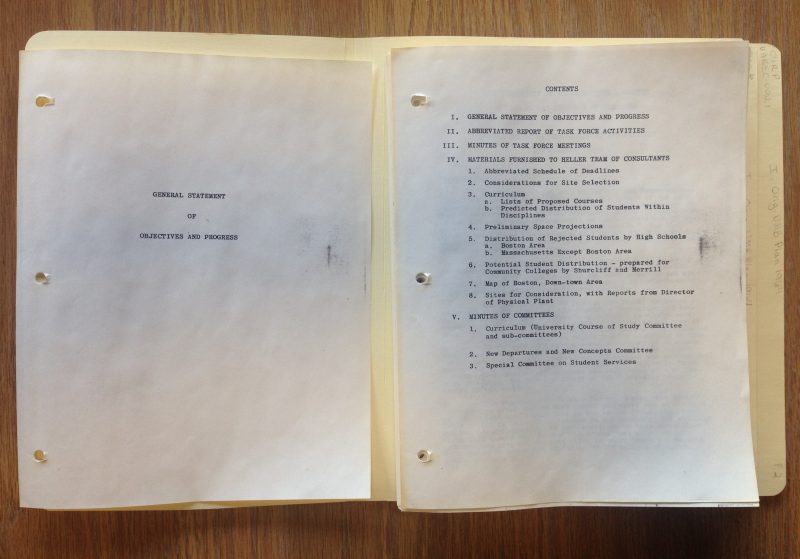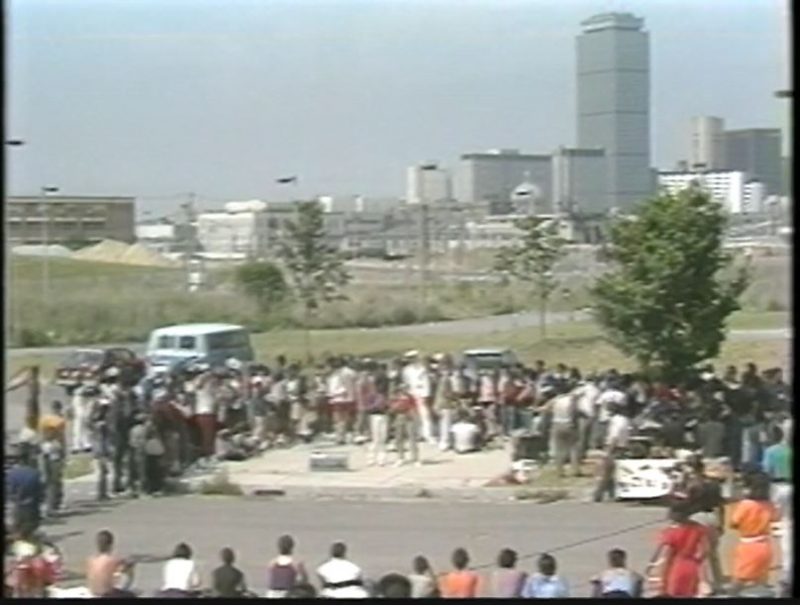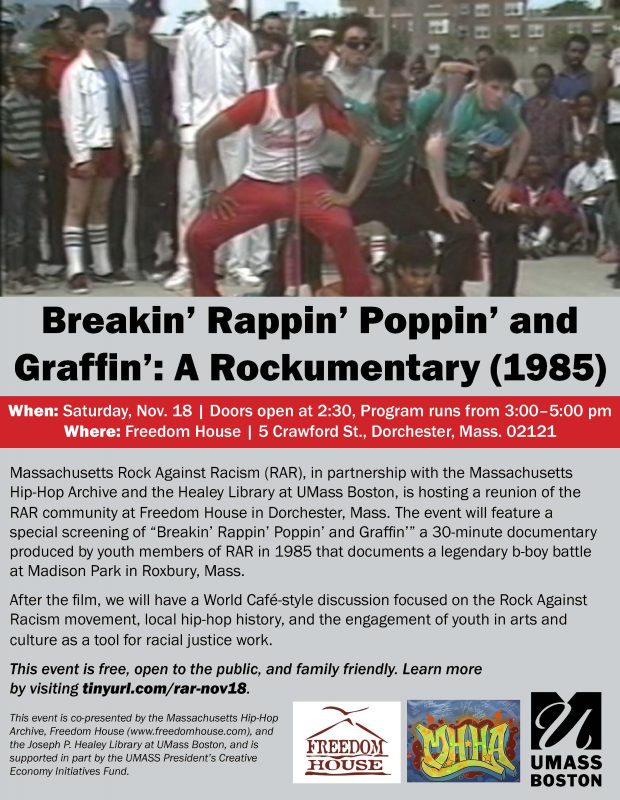University Archives & Special Collections in the Joseph P. Healey Library at the University of Massachusetts Boston is pleased to announce that archival materials from the university’s Office of Institutional Research, Assessment, and Planning records, 1964-2012, have been fully processed and are available for research. Read the finding aid for this collection.
This collection documents the activities of the Office of Institutional Research and Planning at the University of Massachusetts Boston from the establishment of UMass Boston in 1964 through 2012. The bulk of this collection contains long range plans, five-year plans, enrollment reports, statistical portraits pertaining to retention and student enrollment, white papers, notes, and correspondence.
One document of note is the 1964 University of Massachusetts plan for the creation of a public university in Boston to serve the educational needs of the metropolitan area. Included in the plan are the minutes of task force meetings, proposed curriculum, space projections, student distribution information, and sites for consideration downtown and in the Greater Boston area.
The Office of Institutional Research, Assessment, and Planning provides data in support of policy formation, decision making, assessment, and planning. Annual publications include: Fast Facts, Who Are Our Students? and Statistical Portraits. The office is the primary source for official campus statistics, complying with federal, state, and university reporting standards and requirements. The office coordinates or completes the major college guides and professional association surveys, and conducts student surveys and special research studies in support of university policy formation, assessment, and accountability (1).
The finding aid for the Office of Institutional Research, Assessment, and Planning records is available here.
For questions about this collection or to schedule a research appointment, please contact library.archives@umb.edu or 617-287-5469.
For more information about the history of UMass Boston and related collections held in University Archives & Special Collections at UMass Boston, click here.
——————————-
Sources:
1. “Home Page.” Office of Institutional Research, Assessment, and Planning. University of Massachusetts Boston, n.d. Web. 11 Jan. 2017.
University Archives & Special Collections in the Joseph P. Healey Library at UMass Boston collects materials related to the university’s history, as well as materials that reflect the institution’s urban mission and strong support of community service, notably in collections of records of urban planning, social welfare, social action, alternative movements, community organizations, and local history related to neighboring communities.
University Archives & Special Collections welcomes inquiries from individuals, organizations, and businesses interested in donating materials of an archival nature that that fit within our collecting policy. These include manuscripts, documents, organizational archives, collections of photographs, unique publications, and audio and video media. For more information about donating to University Archives & Special Collections, click here or email library.archives@umb.edu.




